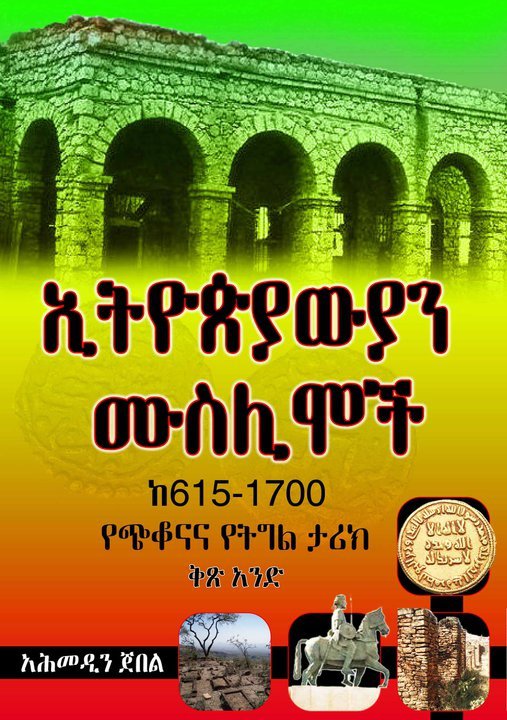Written by Afendi Muteki
-------------------------
Some 20 years ago, in the holy month of Ramadan, whenever you
visited many of the coffee houses (“shayi bet” in Amharic) in Mercato, Adare Sefer and other counties of
Addis Ababa and in the cities of Dire Dawa, Harar, Adama, Jimmaa, Dessie, Asosa
etc, what you hear from the tape recorders put besides the cashiers were mostly
the Sudanese songs of Muhammad Wardi, Ahmad Al-Mustafa and Sayyid Khalifa. It
seemed to me that most of the youth of the time used to consider those Sudanese
songs a meaningful spiritual melodies. Since 2000 G.C., however, this habit
started to change slowly where the songs were being replaced by the marvelous Sudanese
“Nasheeda” (properly called “Madeeh”). And, from the Ramadan of 2003 (1995 E.C.)
onwards, the evenings of the caffes, restaurants, music shops etc of Addis
Ababa and other towns are dominated by these Sudanese “Madeeh”. Such a dramatic
change happened, as I think, with the emergence of the highly mystique Sudanese
“Nasheeda” album titled “Al-Adnani”.
I heard one “Madeeh” included in the album “Al-Adnani” in
1996 from the Sudanese “Radio Omdurman”. But at that time, it seemed to me that
a worldly singer sung it just as some Ethiopian singers were doing. As time passes, I came to know that there are
thousands of Sudanese individuals and groups who entirely dedicated their life
for “Madeeh” only. And the group that sung “Al-Adnani”, known as “Firqatu
Sahwa” (meaning “the revivalists” or “the awakeners”), was one and the best
known Sudanese Madeeh group along with “Al-Asala” group. And in recent years,
so many individuals are joining the “Madeeh” genre. Among them is the blind
super star called “Hanan Al-Niel”.
***** ***** *****
In most cases, the Sudanese “Madeeh” singers don’t write
their own “Nasheeda”. They usually took the “Madeeh” poetry written by old
Sheikhs and perform it in their own lyrics. Among these sheikhs of “Madeeh”
poetry, the most influential and highly gifted one was Sheikh Abdurahim
Muhammad Al-Bura’i.
Sheikh Abdurahim Al-Bura’i was born in 1923 in North
Kordofan. He was educated in many parts
of the Sudan under different sheiks. Up on the completion of his education, he
settled in his home Kordofan where he served as the people’s teacher for nearly
50 years. He lived there until his death.
Sheikh Al-Bur’ai was a highly gifted and influential
teacher. But most notably, he is known for his “Nasheeda” revolution. As I said
in the above section, most of the Sudanese “Munshids” (performers of
“Nashedaa”) use his poetry for their “Madeeh”. His influence can be felt still
after his death. I (the writer of this small article) can witness that I
learned many things through his poetry.
In his poetry, Sheikh Bu’rai stressed deep spiritually and
Islamic way of life. He wrote about staying firm on “Ibadah” (worship of
“Allah”), making “da’wa” (preaching), having a good family, respecting the parents, giving charity, having good manners, etc...
He also teaches the story of the Sahaba (companion’s of the prophet , s.a.w) in
a resplendent way. However, I admire the poetry of Sheikh Al-Bur’ai mostly for
their advices of the youth. For example, in one poetic Madeeh performed by
“Firqatu-Sahwa”, the Sheikh advised the youngs on the importance of “Halal”
marriage in the following manner.
“Ahfaz Li nisfa-Diini
Bi ziwaajin zatu-Ddini.
Sharikatu fi hayaatuk
Aanisatu fi bayaatuk
Abadun walaa tzlimha
Wa-ddiinin Haanif allimha
Ni’mak laa tahrimhaa
Wa ra’ hurmatuha wa akrimhaa”
Here is the approximate meaning of the poetry in English
“Hold the half of your faith (i.e. Islam)
By marrying a wife that held her faith.
She is your friend in your life
And she is the strength of your family.
Never do a wrong on her
Educate her with best of the faith
Don’t restrict her from using your property (since it belongs to both of you)
Keep her dignity, and be generous to her.”
***** ***** *****
Sheikh Al-Bur’ai’s “Nasheeda” revolution got him accredition
from many directions. And in 2002, the University of Khartoum awarded him an Honorary
Doctorate of Literature for his popularization of the “Madeeh” poetry in the
Sudan and other countries, which he received from the hand of the Sudanese
President Umar Hassan Ahmad Al-Bashir.
Sheikh Al-Burai died in 2005. May Allah award him Jannah.
-------------------------
Afendi Muteki
Ramadan 6/1431


